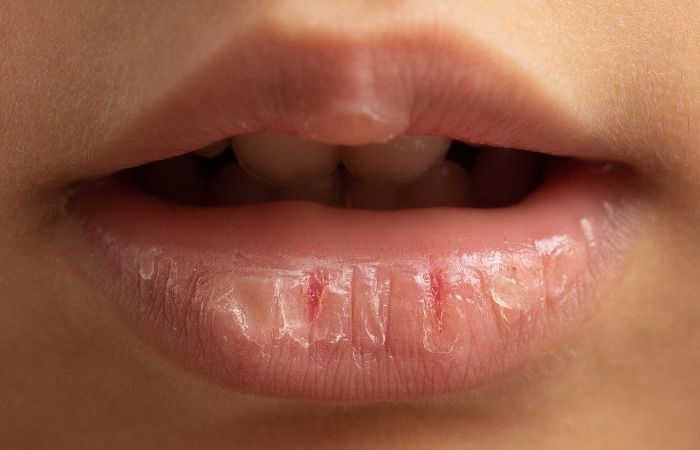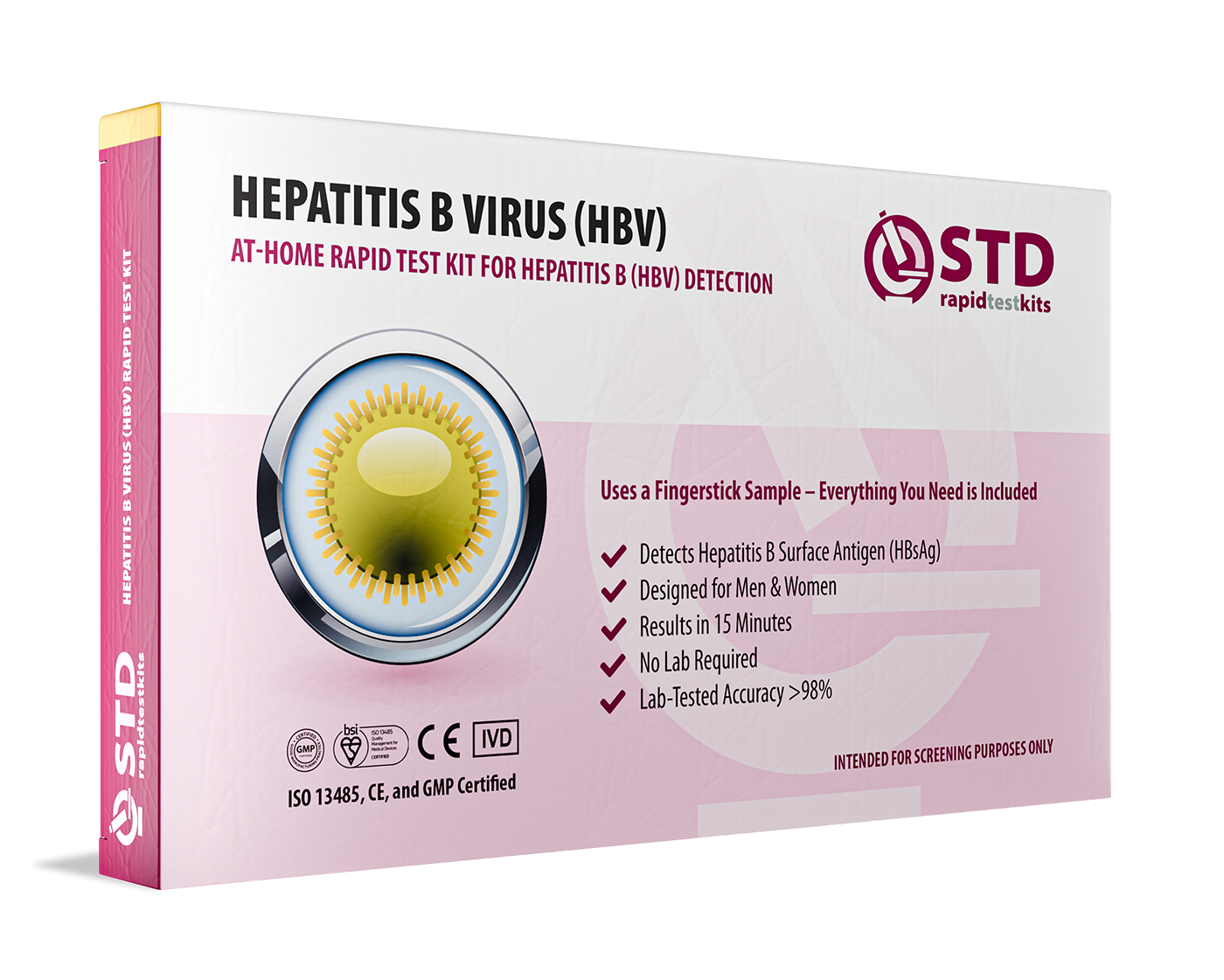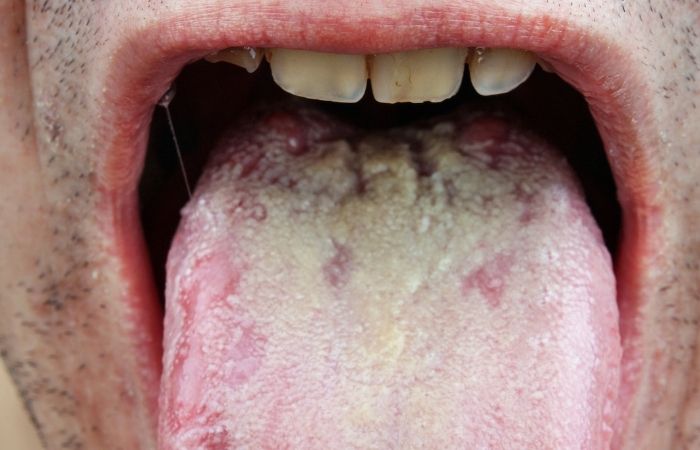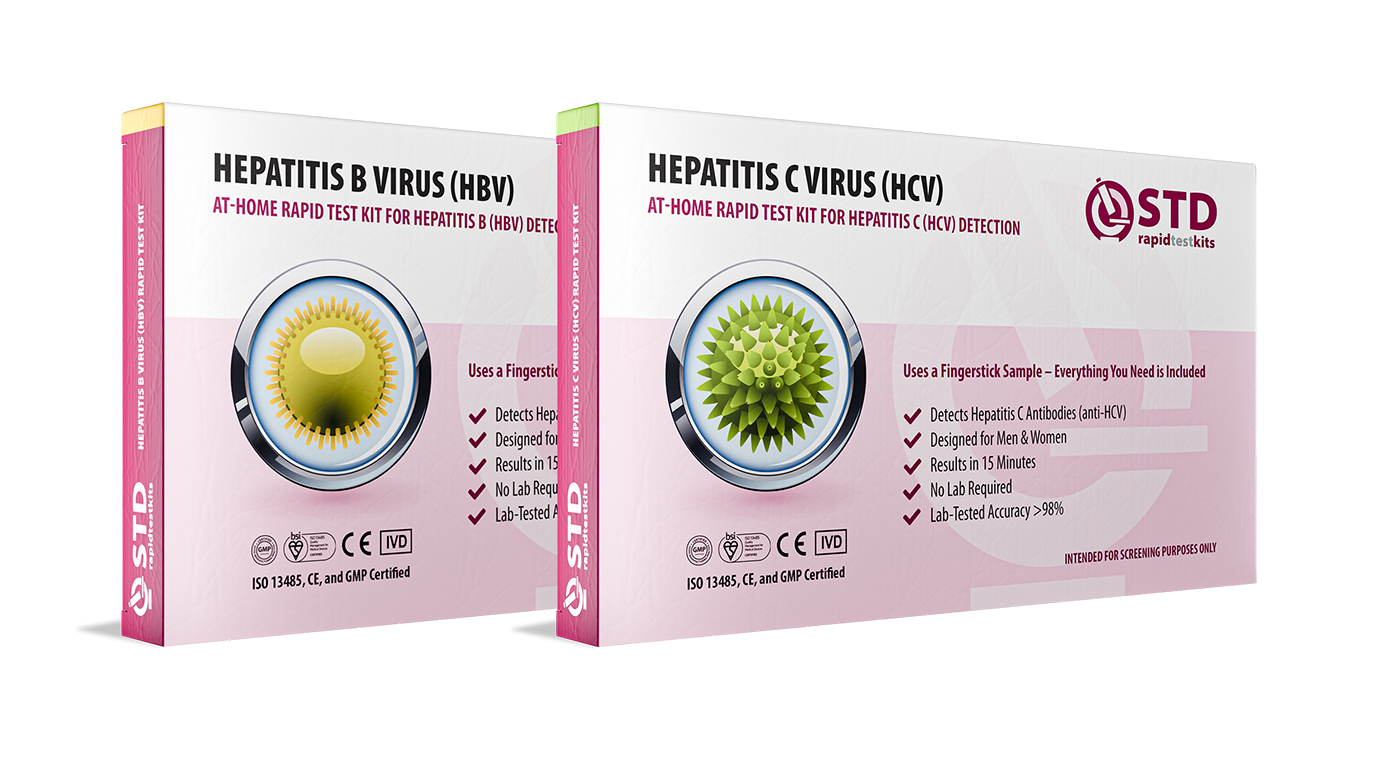Quick Answer: Hepatitis B can cause oral symptoms like yellowing of the tongue, dry mouth, bleeding gums, pale mucosa, and mouth sores, especially if your immune system is fighting hard. These signs can appear before liver-related symptoms.
This Isn’t Just a Vitamin Deficiency, It’s a Signal
It starts subtle. You brush your teeth and taste blood. You notice your tongue has a strange yellow film you can’t brush away. You tell yourself it’s a vitamin thing, dehydration, or stress. But if your body’s trying to detox and your liver’s under attack, your mouth might be the first to react.
According to the CDC, oral symptoms aren’t the first sign doctors look for with Hepatitis B, but they’re absolutely real, especially when infection is active or undiagnosed. Here’s what we see show up most often in real people:
- Yellow tongue or mucosa: Caused by bilirubin buildup before jaundice appears
- Bleeding gums: Liver dysfunction can impair clotting
- Pale mouth lining: Early liver stress can reduce blood flow or oxygenation
- Dry mouth or metallic taste: A systemic reaction to chronic viral presence
- Mouth ulcers or canker-like sores: Immune system overdrive
These are often dismissed or misdiagnosed as stress reactions, poor hygiene, or nutritional deficiencies, especially in younger adults, queer folks, or those without obvious risk factors. But if you’ve had unprotected oral sex, even once, it’s worth paying attention.

People are also reading: The Important Role Vaccines Play in Preventing STDs
Case Study: “I Thought It Was Just a Toothbrush Cut”
Ty, 27, started seeing blood on his toothbrush every morning but figured it was from brushing too hard. When his gums started bleeding during sex, without even touching them, he got spooked.
“I didn’t feel sick. I worked out. I ate clean. But something felt… off. I went in for a dental cleaning and they told me my mouth looked pale. Like, too pale. That’s when I started Googling hepatitis stuff.”
Ty tested positive for Hepatitis B using an at-home test and got linked to care early, before liver damage occurred. His symptoms were only oral. No jaundice, no nausea. Just blood, dry mouth, and fear.
Hepatitis B Can Be Oral, But It Doesn’t Always Hurt
Most people don’t associate Hepatitis B with the mouth because the virus is best known for how it affects the liver. But the virus can circulate in blood and saliva, especially during acute infection. That means your oral tissues can reflect infection, even before classic symptoms like jaundice, abdominal pain, or fatigue show up.
Studies like this nonsystematic review confirm mouth-related symptoms such as:
- Petechiae: Small red or purple spots on the roof of the mouth
- Angular cheilitis: Painful cracks at the corners of your lips
- Lichen planus: White, lace-like patches on the tongue or cheeks
The tricky part? Most of these signs are painless. You might notice them while flossing, or a partner might mention your breath smells different. That’s it. No fever, no emergency, just signs you’re told to ignore.
Oral Sex Isn’t “Safer” If You’re Ignoring Hepatitis B
We need to talk about how Hepatitis B spreads, because oral sex is not a free pass. Saliva alone isn’t considered high-risk by most guidelines. But when it’s mixed with microscopic cuts, gum inflammation, or shared objects (like sex toys or toothbrushes)? The math changes.
According to the Missouri Department of Health, Hepatitis B can transmit via oral sex when blood or mucosal disruption is involved. That means:
- Bleeding gums during a blow job or rimming session
- Mouth ulcers or cracked lips making tiny blood exposures possible
- Unnoticed cuts on the receiving partner’s genitals or anus
Throw in things like toothbrush sharing, rough flossing before oral, or having dental work without waiting for full healing, and it’s easy to miss how transmission could happen. Many people with Hepatitis B have no idea how or when they got it. That’s because the virus is efficient, silent, and often symptom-free.
Check Your STD Status in Minutes
Test at Home with RemediumHepatitis B Test Kit

 For Men & Women
For Men & Women Results in Minutes
Results in Minutes No Lab Needed
No Lab Needed Private & Discreet
Private & DiscreetOrder Now $33.99 $49.00
People Don’t Always Know They’re Carriers
One of the hardest parts about diagnosing Hepatitis B is that it can live in the body without symptoms for years. You, or your partner, can pass it on without ever feeling sick. That’s why it's often called a “silent infection.”
Roughly 2.4 million people in the U.S. are living with chronic Hepatitis B, many undiagnosed. You don’t need to “look sick,” have multiple partners, or engage in high-risk behavior. It can happen from:
- Oral sex, even if it's a one-time hookup
- Sharing razors or toothbrushes with a carrier
- Being born to a carrier parent (especially in high-prevalence countries)
- Tattoos or piercings with non-sterile tools
If you’re experiencing oral symptoms and don’t feel “sick enough” to justify them, testing is the only way to be sure. Mouth sores, bleeding gums, or even changes in taste can be early immune responses to the virus circulating in your body.
Call It What It Is: A Wake-Up Sign
We’re not here to scare you. But we are here to say this: your mouth is part of your immune system. If it's showing you signs, yellow coating, inflammation, blood, ulcers, it’s your body asking you to check in.
Hepatitis B is highly treatable when caught early. And it’s one of the few STIs with a vaccine. But if you're already infected and don't know it, those subtle oral signs could be your only early alert.
That’s why at-home testing isn’t just for “promiscuous” people (a word we hate, by the way). It's for anyone who values their health and doesn’t want to gamble on silence.
Whether it’s a bump or a question mark, you deserve to know. This Combo Test Kit screens for multiple STDs from home, with discreet delivery and fast results.
Not Herpes, Not HPV, This Is What Makes Hepatitis B Different
It’s easy to misdiagnose your own mouth. You Google "white bump mouth STD" and 30 tabs later, you’re spiraling between Herpes, HPV, oral cancer, or “probably nothing.” So let’s clear up how Hepatitis B looks and feels differently in the mouth:
- Herpes: Painful blisters, often clustered, that rupture or crust
- HPV: Wart-like growths (may be painless), often on lips, gums, or back of throat
- Hepatitis B: Subtle yellowing, mucosal paleness, unexplained bleeding, ulcers, dry mouth, or a metallic taste
The biggest difference? Hepatitis B oral symptoms often don’t hurt. They show up as immunologic responses, not local infection damage. That’s why they get missed. No burning, no swelling, no red alert, just “something feels off.”

People are also asking: How Long Do Oral STDs Last in the Throat?
Myth: “If I Don’t Have Jaundice, I’m Fine”
This one’s deadly. Most people with Hepatitis B never get jaundice. You may never turn yellow. That doesn’t mean you’re not infected, or that you’re not contagious.
In fact, research shows that immune-system reactions, like oral lichen planus, gingival bleeding, or pale mucosa, can appear even when liver markers are normal.
Here’s what that means: If you’re seeing strange things in your mouth, especially if you’ve had unprotected oral or shared intimate items with someone (like toothbrushes or razors), testing is smart, not paranoid.
How to Talk to Your Partner or Dentist About It
One of the most terrifying parts of dealing with a potential STD is telling someone. Whether it’s your dentist, your partner, or even your best friend, you might be worried they’ll judge you. But here’s what helps:
- Use “I” statements: “I noticed something unusual in my mouth and I want to get it checked.”
- Blame the virus, not the behavior: “Hepatitis B can spread even from oral sex. I didn’t know that.”
- Bring the facts: “The CDC says Hep B can be spread by saliva if there’s blood or sores involved.”
Most dentists will be grateful you spoke up. And most partners would rather know than not, especially if they love or respect you. Don’t let shame or silence cost you your health.
Check Your STD Status in Minutes
Test at Home with RemediumHepatitis B & Hepatitis C Test Kit

 For Men & Women
For Men & Women Results in Minutes
Results in Minutes No Lab Needed
No Lab Needed Private & Discreet
Private & DiscreetOrder Now $49.00 $98.00
For all 2 tests
If You're Queer, a Caregiver, or a First-Timer, Read This
Not everyone has the same relationship with risk, and not everyone hears the same message when it comes to Hepatitis B. Let’s break down three specific groups often overlooked in testing campaigns, despite being at risk from oral contact alone.
Queer Men and People Assigned Male at Birth (AMAB)
If you’ve given or received oral sex between men or with AMAB partners, your mouth becomes part of the STI equation. According to CDC data, men who have sex with men are at higher risk for Hepatitis B, especially when saliva and semen interact with microscopic tears, dental work, or mouth sores. You don’t need penetration to be exposed, and oral symptoms like ulcers, dry patches, or gum bleeding may be your first clue.
Caregivers and Close-Contact Family Members
Hep B isn’t “just an STD.” You can contract it from close, nonsexual contact, especially if you’re helping someone with hygiene tasks, cleaning up bodily fluids, or sharing toothbrushes, razors, or nail clippers. If your loved one has Hepatitis B (even undiagnosed), and you’re noticing odd oral symptoms in yourself, this might be why. Mouth cuts and bleeding gums create silent entry points.
“Just Oral” Partners and First-Timers
If you’ve only had oral sex and believed that made you “safe,” you’re not alone, and you’re not wrong to be confused. Oral sex carries lower risk than vaginal or anal, but lower doesn’t mean zero. If you’ve had even one partner and now you’re seeing unexplained symptoms in your mouth, you deserve to rule out Hepatitis B with facts, not fear.
FAQs
1. Can Hepatitis B cause symptoms in the mouth?
Yes. While not always present, Hepatitis B can cause dry mouth, bleeding gums, pale mucosa, yellow tongue coating, and mouth ulcers, especially during acute infection.
2. Is Hepatitis B contagious through oral sex?
Yes, especially if there are cuts, sores, or bleeding in the mouth or genitals. Saliva alone carries low risk, but blood exposure increases transmission odds.
3. Can I have Hepatitis B without jaundice?
Absolutely. Many people never develop jaundice or liver pain. Oral signs may be the only visible symptoms, especially early on.
4. What does Hepatitis B look like in the mouth?
Hepatitis B symptoms can include a yellowish-looking tongue or gums, painful mouth ulcers and spontaneous gum bleeding.
5. Is a yellow tongue always a sign of Hepatitis?
No, yellow tongue can result from poor oral hygiene, dehydration, or medications. But if it’s persistent or paired with other symptoms, testing is wise.
6. Can I get tested for Hepatitis B at home?
Yes. Discreet at-home kits are available and accurate. Order a Hepatitis B Test Kit here.
7. How do I tell my partner I might have Hep B?
First of all, stay relaxed so you can explain things in a way that won't alarm your partner. Explain that Hepatitis B is a common virus and that you believe you might have it, so you're doing the responsible thing and getting tested. In the meantime, you're letting them know because communication is key in a relationship and you want to take some precautions to avoid passing the virus in case you're positive.
8. Will my dentist judge me if I have oral symptoms?
No. Dental professionals are trained to handle infection risks without stigma. Letting them know protects both of you.
9. Is it possible I got Hep B from kissing?
Very unlikely unless both partners had open sores or bleeding gums. Deep, blood-exchanging kisses could pose a small risk but it’s rare.
10. Should I get tested if I have a yellow tongue and bleeding gums?
If those symptoms persist and you've had any oral contact or other risk factors, yes. Better to know than guess.
Don't Wait For It to Get Worse!
Your mouth is trying to help you. It might be whispering, not screaming, but those whispers matter. Whether it's a strange sore, blood where there shouldn't be, or something just feels “off,” you don’t have to wait to see if it gets worse.
Don’t wait and wonder, get the clarity you deserve.
Sources
1. CDC: Clinical Signs of Hepatitis B
2. Cleveland Clinic: Hepatitis B
3. American Dental Association: Hepatitis B Oral Risk
4. Missouri Department of Health: Hepatitis B
5. College of Dental Hygienists of Ontario: Oral Clues of Hep B










